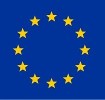Open letter from the European Union's Digital Champions to Member States
"Europe needs more ICT skills, at work and at home. We call upon relevant Ministers to work together to close the skills gap."
The Digital Champions call upon Ministers of the EU Member States to tackle the cross- cutting issue of the digital skills gap in the face of a fast-changing world and the rapid digitisation of Europe.
Today around 100 million EU citizens have no digital skills and are excluded from the digital society. We, the European Union's Digital Champions, call upon the relevant Ministers in the Member States of the European Union to take measures to tackle this digital skills gap in order to ensure that Europe can reap the benefits of digitisation.
It is widely acknowledged that digitisation is a major contributor to economic growth and job creation in the European Union. Europe's citizens need more ICT skills, at work and at home. Europe's prosperity is directly linked to the quality of our workforce. Despite a record number of people, including many young people, out of work, employers often cannot find candidates with the digital skills they require.
We believe it is urgent for Europe to close the skills gap and create the necessary conditions for people to more easily enter the labour market. Furthermore, all Europeans need to acquire the digital skills to help get them online and to benefit from the services, products and opportunities offered by an ever-growing digitised economy and society.
Whilst recognising that most competences in this field lie with Member States and are shared across multiple government departments, in particular ministries for telecommunications, industry, education, employment, etc., we call upon relevant Ministers in the Member States to work closely together with stakeholders to urgently:
Ensure all European citizens have digital skills and get online. To make European citizens aware of how ICT can enhance their work capabilities and employability and facilitate their day-to-day activities.
Create high-speed digital infrastructure for all citizens and businesses.
Ensure that no student should leave school without a basic set of digital skills. Adapt Member States' educational and training systems to the 21st century and ensure that digital skills are included in curricula from pre-school through to higher education and adult learning.
Encourage students to choose studies and careers in ICT and commit to increasing the number of students in ICT-related study programmes by 20% until 2018 and support the programmes with additional funding.
Foster entrepreneurial and innovation abilities through digital skills.
Promote cooperation between industry and other stakeholders to make vocational and academic ICT training more responsive to labour market needs.
Help businesses embrace new technologies which will enable them to be more productive and competitive at home and abroad.
Promote life-long learning, especially through digital platforms such as MOOCs.
Promote work mobility.
Support and closely work together with public authorities and other stakeholders in promoting and teaching digital skills as well as developing digital services.
We, the Digital Champions, are appointed by the Members States and we strive to help every European become digital and benefit from an inclusive digital society. We help all citizens to enhance their digital skills by supporting and leading a wide variety of digital projects in our countries. We are also actively involved in:
13 national Coalitions for Digital Skills and Jobs
EU Code Week initiative, which promotes digital skills and coding
In countries which do not have these initiatives, we call upon Ministers to put in place a
National Coalition for Digital Skills and Jobs and to support the EU Code Week initiative.
Signed by:
Meral Akin-Hecke (Austria), Saskia van Uffelen (Belgium), Gergana Passy (Bulgaria), Darko Paric (Croatia), Stelios Himonas (Cyprus), Ondrej Felix (Czech Republic), Linda Liukas (Finland), Gesche Joost (Germany), Nikos Michalopoulos (Greece), Gilles Babinet (France), Istvan Erenyi (Hungary), David Puttnam (Ireland), Riccardo Luna (Italy), Reinis Zitmanis (Latvia), Kestutis Juskevicius (Lithuania), Björn Ottersten (Luxembourg), Godfrey Vella (Malta), Tineke Netelenbos (The Netherlands), Wlodzimierz Marcinski (Poland), Antonio Murta (Portugal), Paul Andre Baran (Romania), Ales Spetic (Slovenia), Andreu Veà-Baró (Spain) and Jan Gulliksen (Sweden).


